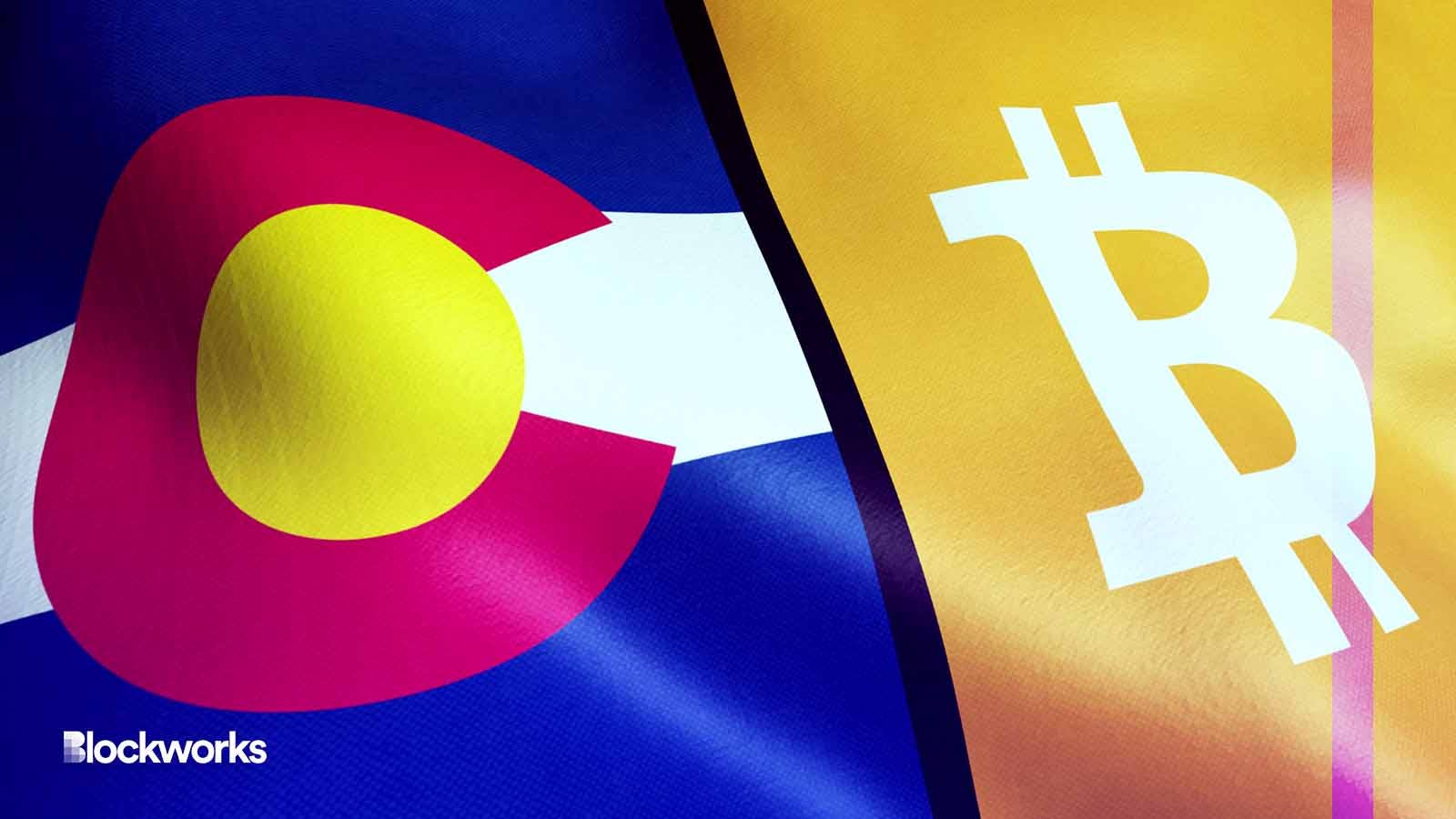Only 11 Colorado Residents Paid Their State Income Taxes With Crypto This Year
Last September, Governor Jared Polis announced that Colorado residents could pay state taxes with crypto

Ahmed Zaggoudi/Shutterstock modified by Blockworks
Residents of Colorado are able to pay their state income taxes in select cryptocurrencies. This is the first year that residents are able to use this method, after Governor Jared Polis announced the change last September.
However, as reported by 5280, only 11 residents opted to pay their state income taxes with crypto by April 14. In 2020, Colorado had 3.1 million individual tax returns.
Applicable taxes include individual and business taxes, withholdings, severance and excise fuel taxes.
Residents who choose to pay their taxes with crypto have to go through PayPal so that the payment provider can “deposit dollars into the state’s treasury,” according to a tweet from Polis’ Twitter account last year.
“Our budget is still in dollars, our expenditures are still in dollars, and, of course, we don’t want to take the speculative risk of holding crypto, so we will be having a transactional layer there,” Polis said in an ETHDenver conference last February. “It will be entering our systems as dollars. For consumer convenience, we want to accept payments in a wide variety of cryptocurrencies.”
And there are fees that are tied to paying with crypto — similar to the fees associated with paying by credit card. Transactions have a fee of $1, as well as 1.83% of the total, according to the Department of Revenue.
Not to mention that residents may be taxed for using the crypto if the crypto used–PayPal currently supports bitcoin, ethereum, litecoin and bitcoin cash–has gone up in price since the resident bought it thanks to capital gains taxes.
Polis has been a supporter of blockchain technology for a number of years. In 2019, he signed an act called the Cryptocurrency Exemption Colorado Digital Token Act, which “provides limited exemptions from the securities registration and securities broker-dealer and salesperson licensing requirements for persons dealing in digital tokens”
Colorado’s Department of Revenue did not immediately respond to a request for comment.
Get the news in your inbox. Explore Blockworks newsletters:
- The Breakdown: Decoding crypto and the markets. Daily.
- 0xResearch: Alpha in your inbox. Think like an analyst.






